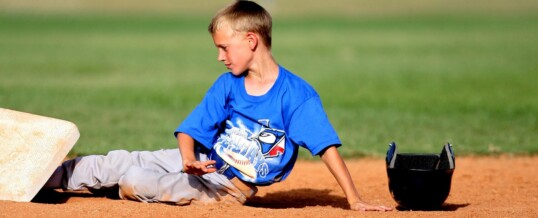
As I love to watch non-professional sports, I have been a regular at area basketball games over the past few months. Thus I witnessed struggles by children and adolescents with overly competitive behavior.
Parents seated nearby shared my concerns and wondered if sports encourage aggressive outbursts in participants and if competition is healthy for children. One mother, alarmed by her son’s behavior, inquired, “How will I know if he needs professional help?”
Good question. And, at her request, I shall address it.
Perhaps the best way to think of this issue is in terms of normal childhood development. Toddlers begin to have competitive feelings with siblings, which often focus on the issue “Me first!”
Gradually these competitive feelings get expressed outside the family with peers in preschool. But by kindergarten and certainly 1st grade, children should be able to relate to age-mates as partners with feelings. Thus they are socially ready for group play. Competitive feelings still exist, but not in such a demanding, mean-spirited way.
By their nature, games are an arena for the deployment of competitive skills – some of an attacking and others of a defending nature. Governed by inflexible rules, participants must be able to tolerate frustration, control their aggression and recognize overly competitive behavior.
As they play and compete, all children compare themselves to others to see where they fall on the achievement scale, priding themselves on their abilities and worrying about their shortcomings.
Eventually healthy children get on friendly terms with their strengths and weaknesses and gain both proficiency and pleasure from competitive games. They also develop an appreciation for their teammates’ skills and can play cooperatively without becoming overly excited or aggressive.
But some children suffer in silence, withdrawing from group play as they feel so inferior to their peers. Others show off their superiority – taunting and ridiculing those who cannot perform at their level. In both of these situations, children are telling adults, through their behavior, that they are in need of help.
Other indicators of a need for professional assistance include:
- Overly aggressive behavior with a desire to hurt others
- Inability to tolerate frustration leading to outbursts
- Overly controlling behavior (ie. “ball hog”)
- Endless complaints about unfairness and being mistreated
- Repeatedly cheating
- Inability to tolerate losing; desperate need to win
- Showing off and always expressing “better than” feelings
For more Parenting Tips, visit www.westpsychotherapy.com.
Image courtesy of Naypong/FreeDigitalPhotos.net
Explore our kindergarten and preschool programs. For younger children, our parent/toddler program provides developmentally minded fun.
MAY
2022


About the Author:
Victoria Todd, LISW-S, Child & Adolescent Psychoanalyst, is a summa cum laude graduate of Case Western Reserve University with a B.A. in Sociology and Psychology and a master’s degree in Social Administration. She developed the “My Mad Feelings” curriculum to prevent bullying by working with children as young as 4 to understand their emotions and appropriately express themselves. A qualified child psychoanalyst, she completed her training at the Hanna Perkins Center for Research in Child Development. A member of the American Psychoanalytic Association, the Association for Child Psychoanalysis and the Cleveland Psychoanalytic Center, she teaches classes and workshops at Case Western Reserve University. She served on the Treatment Subcommittee of the Ohio Child Sexual Abuse Grant and was a member of the Guardian ad Litem Advisory Board and the Children at Risk Coalition.